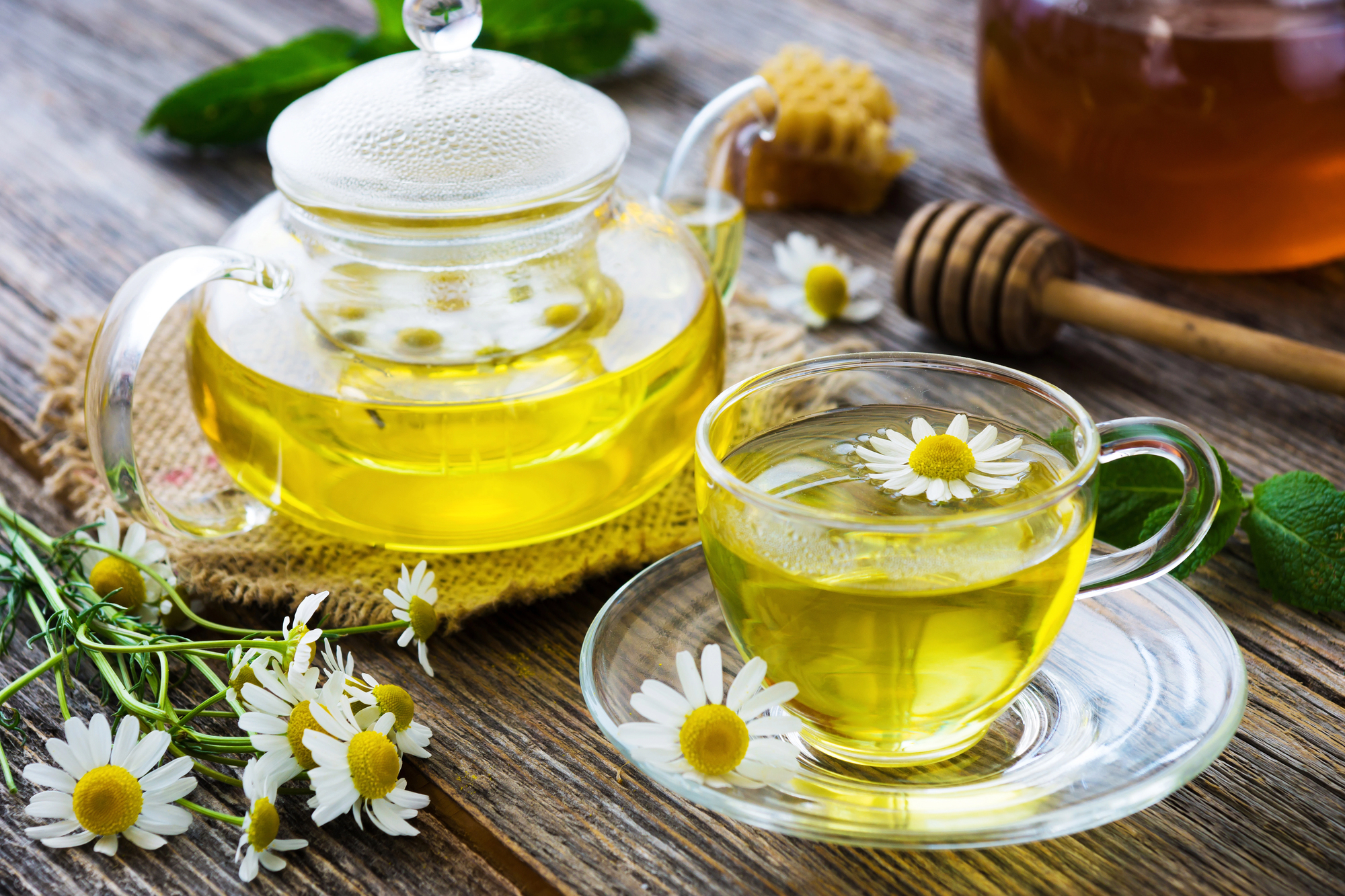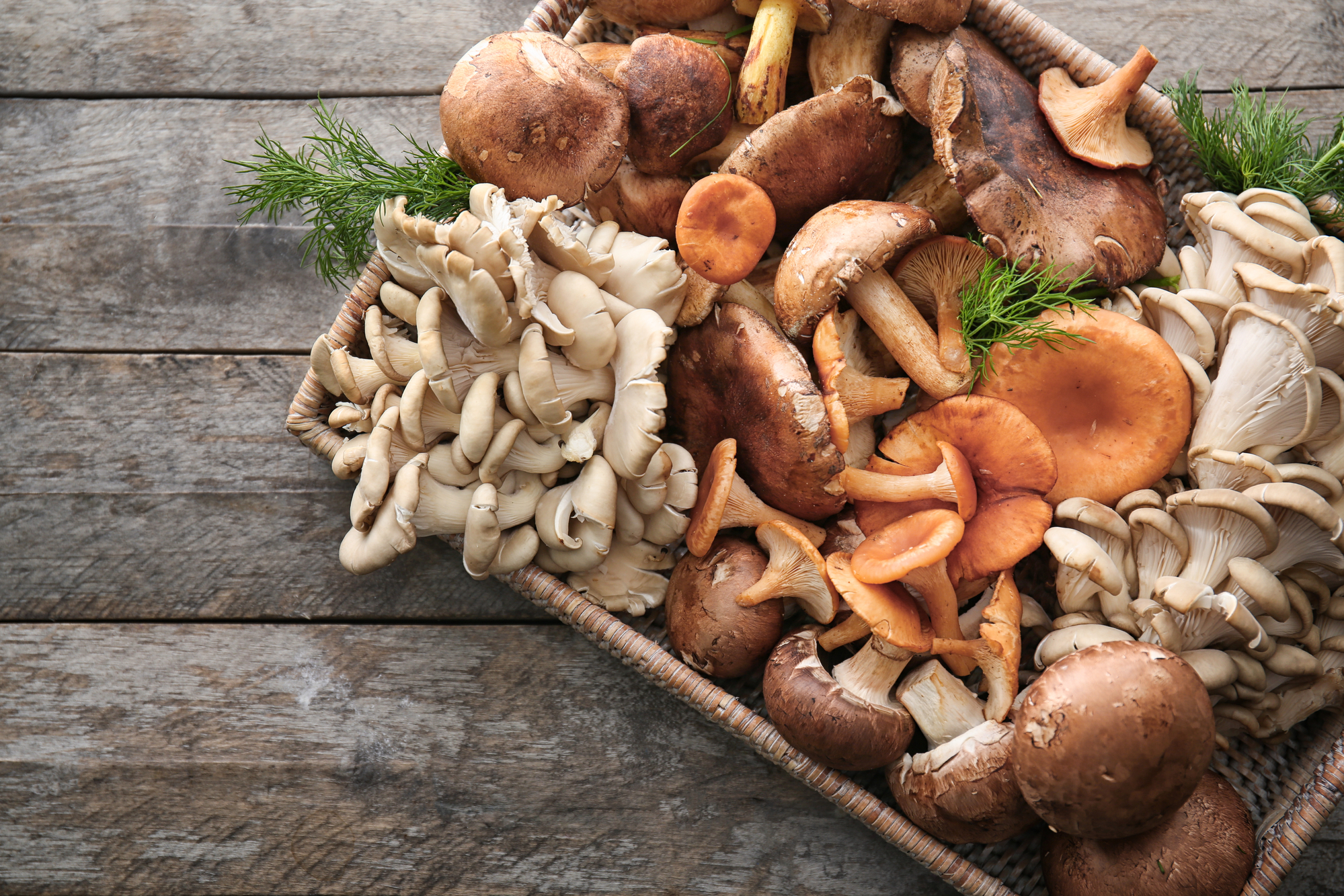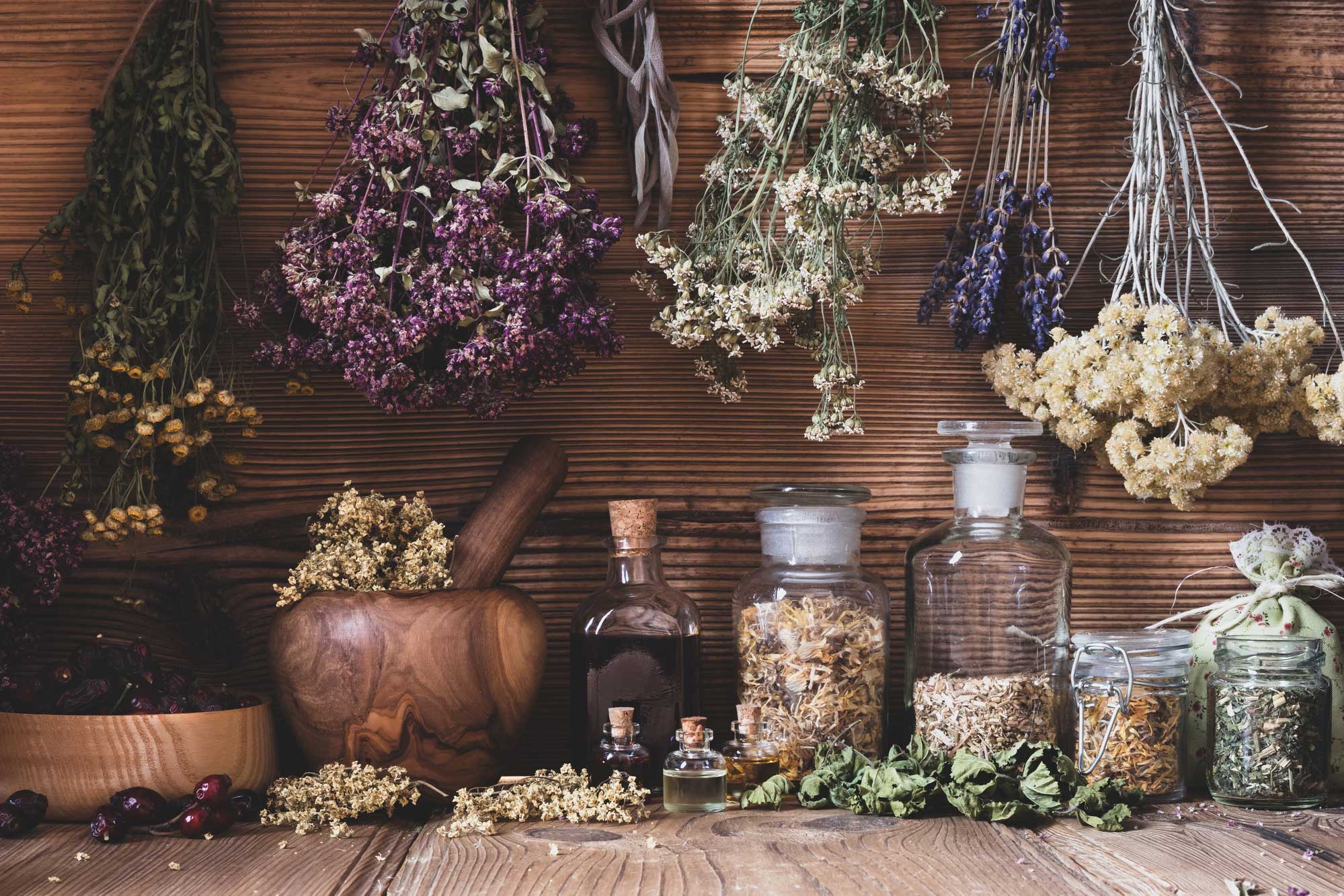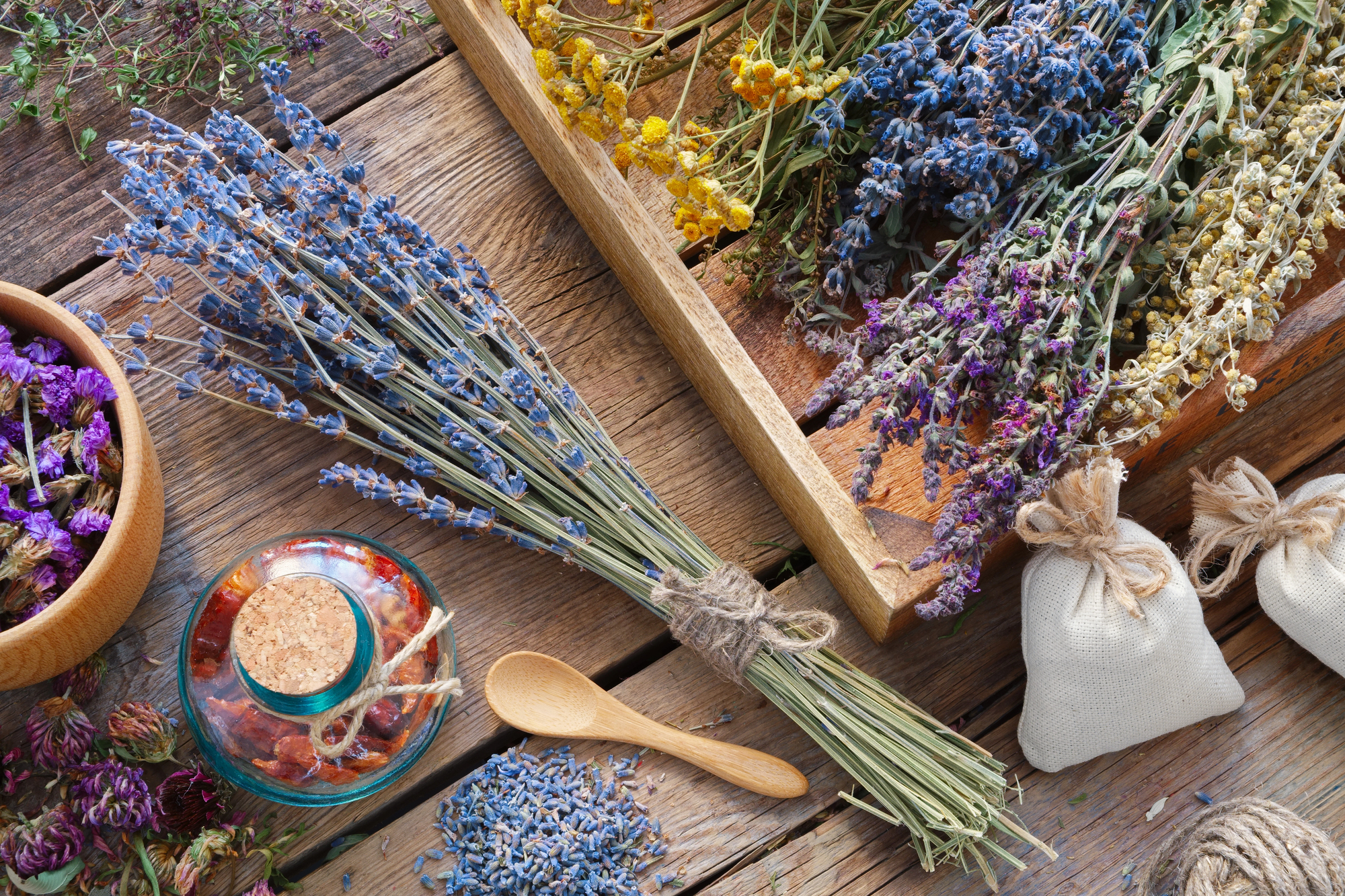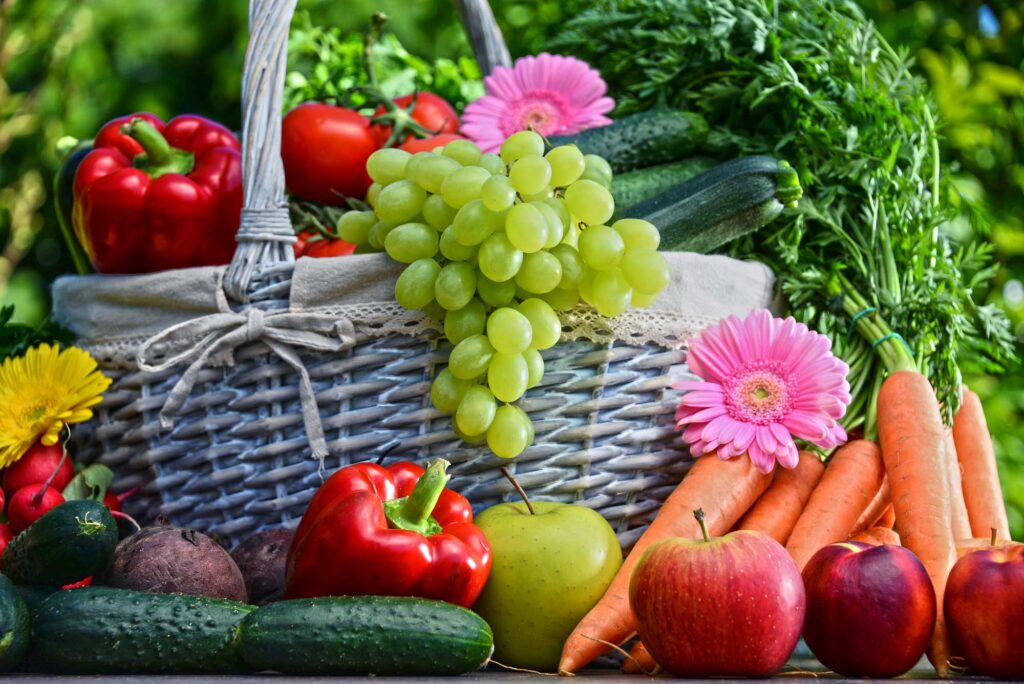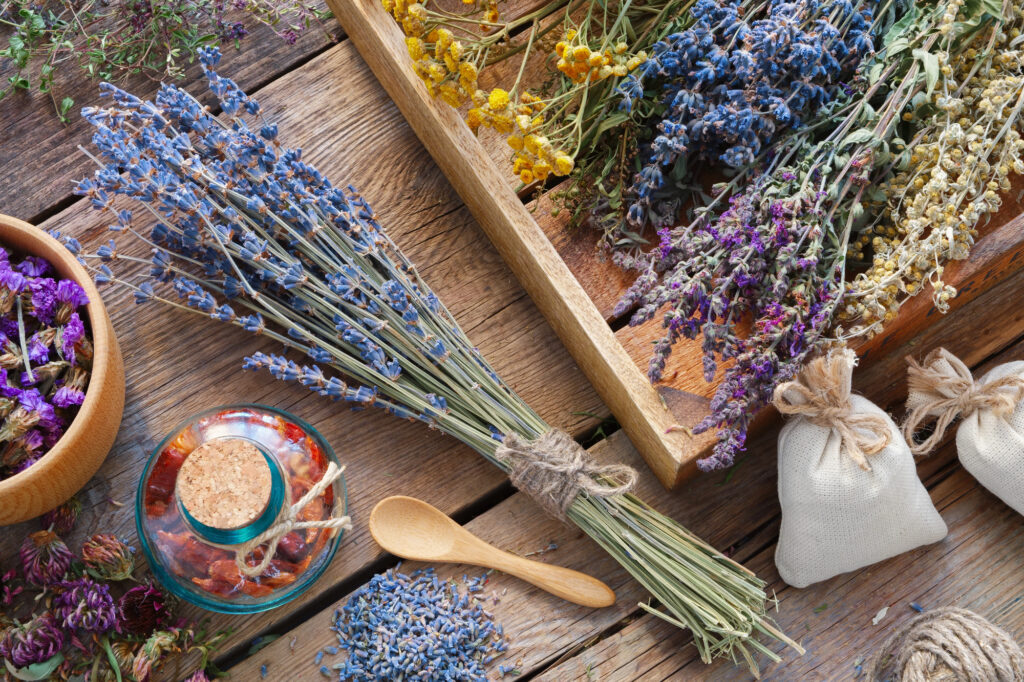As autumn approaches, it’s time to fortify your immune system naturally. Herbs offer a potent way to boost your defenses against seasonal illnesses. Incorporating these natural immunity boosters into your daily routine can strengthen your body’s immune system and reduce reliance on conventional medicines.
Echinacea, elderberry, astragalus, ginger, and garlic are nature’s immune-boosting powerhouses. Each herb provides unique benefits to support your immune function during the cooler months. From antiviral properties to anti-inflammatory effects, these natural remedies can help you stay healthy throughout fall and winter.
It’s easy to add these herbs to your daily routine through simple recipes and preparations. Whether you’re sipping on elderberry syrup, brewing a cup of astragalus tea, or adding fresh ginger to your meals, there are countless ways to harness the healing power of these herbs.
Let’s explore natural immunity in more depth, how each herb can enhance your health this season, and the safety and interactions of using these herbs.
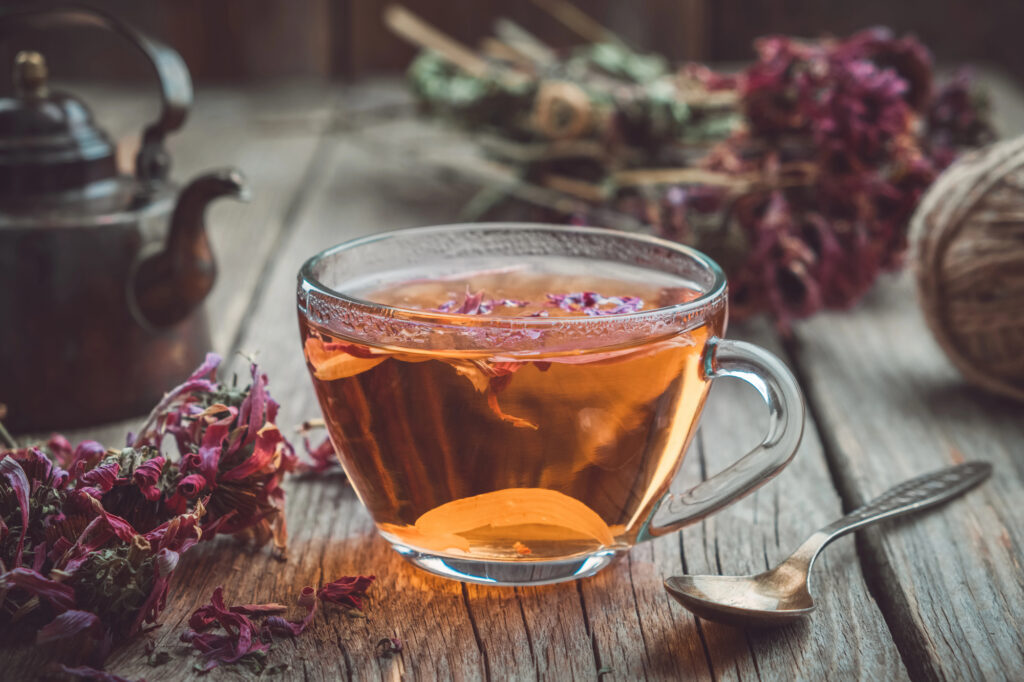
Understanding Natural Immunity
Understanding your immune system is the first step to taking control of your health. It’s a complex network of cells, tissues, and organs that work together to defend your body against harmful invaders. Natural immunity is the body’s inherent capability to defend itself without the need for outside assistance. Recognizing this allows you to actively enhance your immune system and lessen your dependence on traditional medications.
The Role of the Immune System
Your immune system is a guardian, constantly patrolling your body for potential threats. White blood cells are critical players in this defense mechanism. They recognize and neutralize harmful substances, such as bacteria and viruses.
When a threat is detected, your immune system launches a coordinated response. It produces antibodies tailored to fight specific invaders. This process helps your body remember and quickly respond to future encounters with the same pathogens.
Your immune system also helps maintain overall health by eliminating abnormal or damaged cells. This function is crucial in preventing the development of various diseases.
Seasonal Changes and Immune Response
Autumn brings cooler temperatures and less sunlight, which can impact your immune system. Due to reduced sun exposure, your body produces less vitamin D, potentially weakening immune defenses. Colder weather also drives people indoors, increasing exposure to circulating viruses.
Stress from busy fall schedules and changes in sleep patterns can further compromise immunity. Your body may struggle to adapt to these shifts, making you more susceptible to colds and flu.
To counteract these effects, focus on managing stress, proper sleep, and maintaining a balanced diet rich in immune-supporting nutrients.
Benefits of Boosting Immunity Naturally
Enhancing your immune system through natural methods offers several advantages. Natural approaches often have fewer side effects compared to synthetic medications.
Supporting your immune system can help you:
- Reduce the frequency and severity of common illnesses
- Recover more quickly when you feel sluggish or get sick
- Maintain better overall health every day
Natural immunity boosters, like herbs, often provide additional health benefits beyond immune support. For example, many immune-supporting herbs also have anti-inflammatory properties that can improve your general well-being.
By focusing on natural immunity, you proactively approach your health. This strategy can lead to long-term benefits and may reduce your reliance on conventional treatments during flu season.
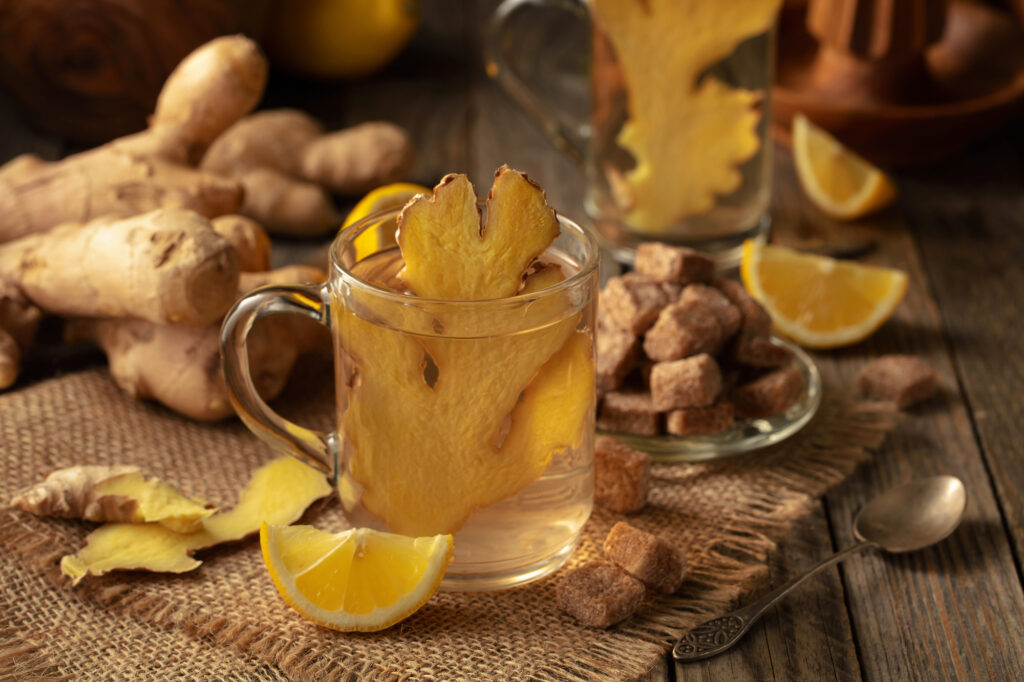
Herb Profiles and Benefits
These five powerful herbs offer unique immune-boosting properties to support your health during the fall season. Each herb provides distinct benefits and can be easily incorporated into your daily routine.
Echinacea: The Immune Fortifier
Echinacea is a powerful herb known for stimulating the immune system. It stimulates the production of white blood cells, enhancing the body’s natural defense mechanisms. Echinacea is beneficial as it shortens cold symptoms such as cough, sore throat and fever.
Elderberry: The Antioxidant Powerhouse
Elderberry is packed with immune-boosting antioxidants and vitamins that support immune function. It’s particularly effective against viral infections like the flu. This berry has been shown to reduce the severity and duration of colds and flu.
Astragalus: The Ancient Protector
Astragalus has been used in traditional Chinese medicine for centuries to boost immunity and overall health. Astragalus is a powerful adaptogen that helps your body resist stress and consistently strengthens your immune system. It’s particularly beneficial for long-term immune support. It may also help your body fight off infections, relieve nausea or vomiting, and reduce inflammation.
Ginger: The Inflammation Soother
Ginger offers potent anti-inflammatory and antioxidant properties. It may help reduce inflammation in your body and support overall immune function. Ginger is a warming herb that helps soothe sore throats, reduce nausea, and relieve cold symptoms.
Garlic: The Natural Antiviral
Garlic’s antimicrobial properties make it a potent natural antibiotic. It helps your body fight off various infections and boosts overall immune function. Garlic contains compounds that may enhance immune cell function and demonstrate antiviral properties.
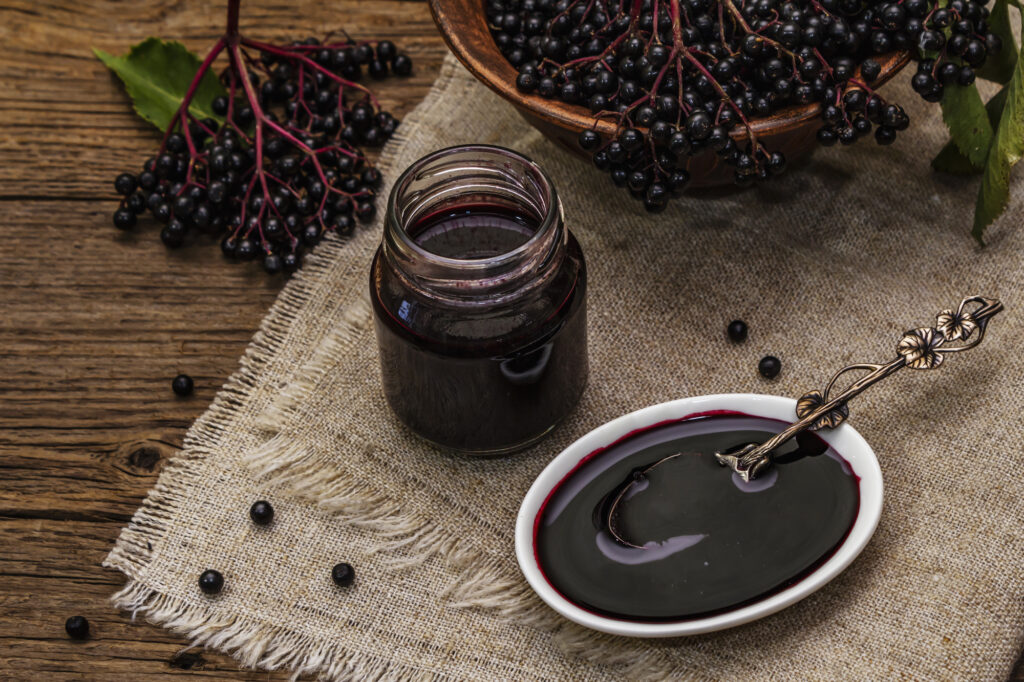
Simple Herbal Recipes for Immunity
These easy-to-make herbal recipes can help boost your immune system naturally. Incorporating these herbs into your daily routine can support your body’s defenses during cold and flu season. The simplicity of these recipes should make you feel at ease and is perfect for beginners or seasoned herbalists.
Echinacea Tea for Immune Defense
To make Echinacea tea, steep one teaspoon of dried Echinacea root or two teaspoons of dried leaves in one cup of hot water for 10-15 minutes. Strain and drink up to three cups daily at the first sign of illness.
You can add a slice of lemon and a teaspoon of honey or agave nectar for extra flavor and a boost of vitamin C. Echinacea tea may help stimulate your immune system and reduce the severity and duration of colds and flu.
For convenience, keep Echinacea tea bags on hand. Drink a cup in the morning and evening during flu season to maintain immune support.
Elderberry Syrup for Antioxidant Support
Make your elderberry syrup by simmering one cup of dried elderberries with three cups of water for thirty minutes. Strain, add one cup of honey, and store in the refrigerator for up to three months.
Take one tablespoon daily for adults or one teaspoon for children to boost immunity. During illness, increase the dosage to 3-4 times daily.
Elderberry is rich in antioxidants and may help reduce the severity and duration of colds and flu. You can also add elderberry syrup to sparkling water for a refreshing, immune-boosting drink.
Astragalus Soup to Strengthen Immunity
Create an immunity-boosting soup by simmering 4-5 slices of dried astragalus root with vegetable broth, and your choice of veggies for 30-45 minutes. Remove the astragalus before serving.
Enjoy this nourishing soup two to three times a week during cold and flu season. Astragalus may help strengthen your immune system and increase your resistance to infections.
You can also find astragalus in powder form. Add 1/2 teaspoon to smoothies or mix into oatmeal for an easy immune boost.
Ginger Shots for Digestive Health
Make ginger shots by juicing 2 inches of fresh ginger root with one lemon and apple. Divide into 2-ounce portions and drink one shot daily on an empty stomach.
Ginger has anti-inflammatory properties and may help boost your immune system. It also aids digestion and reduces nausea.
For a warming drink, steep sliced fresh ginger in hot water for ten minutes. Add honey and lemon to taste. Enjoy this ginger tea throughout the day to support your immune system.
Garlic Broth to Fight Colds
Prepare a simple garlic broth by simmering 4-5 cloves of crushed garlic in two cups of vegetable broth for 10-15 minutes. Strain and drink warm.
Consume this broth at the first sign of a cold or twice weekly during flu season. Garlic contains allicin, a compound with antimicrobial properties that may help fight off infections.
You can also incorporate more garlic into your daily meals. For maximum benefits, add raw minced garlic to salad dressings or crush a clove into soups, sauces and stews just before serving.
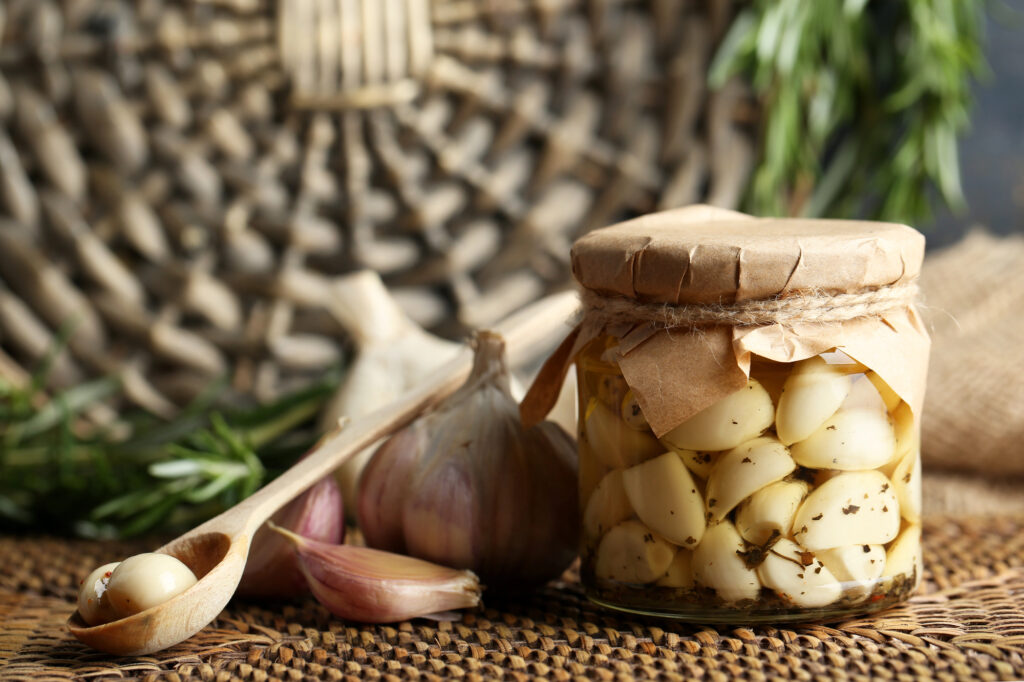
Understanding Herb Interactions
Herbs can interact with medications and other supplements. Before adding new herbs to your routine, check for potential interactions with any drugs you’re taking. Some everyday interactions to be aware of are as follows:
- Astragalus should not be used if you are pregnant or taking immunosuppressants.
- Elderberry should not be consumed by pregnant women or people with allergies or gastrointestinal diseases.
- Echinacea might interfere with prescribed immunosuppressants.
- Ginger can cause mild heartburn or stomach upset if taken in large quantities. Do not use it if you are pregnant and close to your delivery date.
- Garlic can cause side effects such as bad breath, gas, and diarrhea and cause an allergic reaction in some people.
Always inform your healthcare provider about the herbs you’re using and/or consult with a holistic healthcare practitioner. Keep a list of all supplements and medications for reference and stop taking all herbs if you have any reaction to them. Herbs are typically tolerated in small doses, but consistency is key to maximizing health benefits.
Safety and Precautions
While herbal remedies can be beneficial, using them safely and responsibly is essential. Understanding potential interactions and knowing when to consult a professional is crucial to maximizing their benefits.
When to Seek Professional Advice
Consult a healthcare professional before using herbal remedies if you:
- Are pregnant or breastfeeding
- Have a chronic health condition
- Are taking prescription medications
- Experience unexpected side effects
Seek immediate medical attention if you develop severe allergic reactions, such as difficulty breathing or swelling. Don’t rely solely on herbs if symptoms persist or worsen during cold and flu season. Herbs are wonderful to use as a preventative option and to support overall well-being.
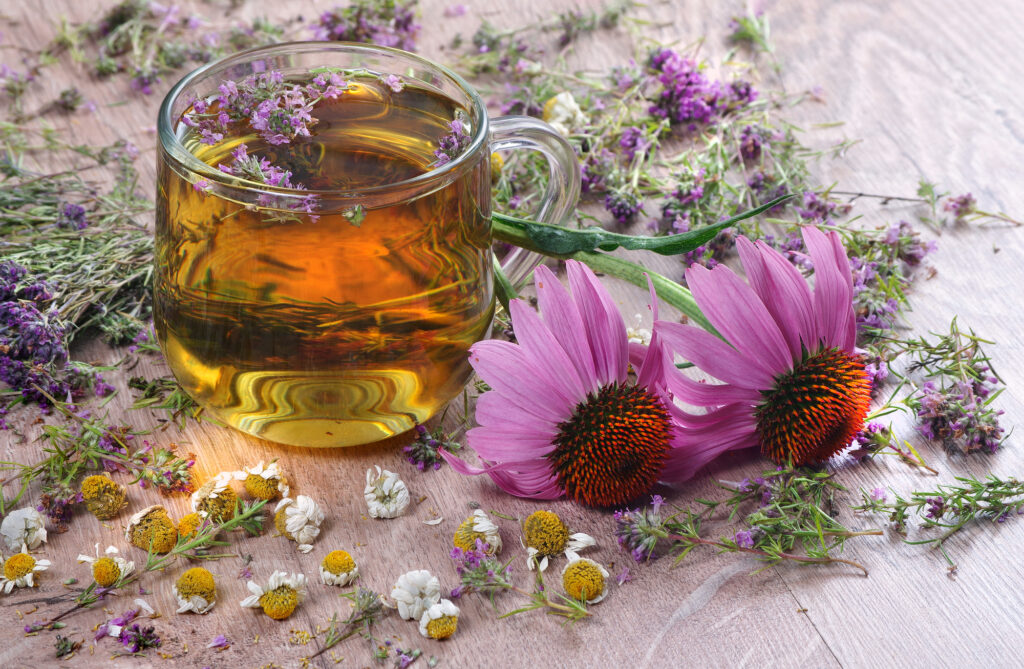
Conclusion
Natural immunity boosters offer a powerful way to support your health this autumn. As cooler weather approaches, arm yourself with nature’s immunity allies. Your body will thank you for the extra support during the challenging fall and winter months.
Remember to listen to your body and adjust usage as needed. While these herbs are generally safe, it’s wise to consult a healthcare provider, especially if you have existing health conditions or take medications.
Embracing herbal remedies can complement a healthy lifestyle. Combined with proper rest, nutrition, and stress management, they form a holistic approach to wellness.
Remember to pass these tips along to your friends and family, ensuring that everyone enjoys a healthy fall and winter season. Wishing you all the best on your wellness journey from the Love Yourself Holistic team!

